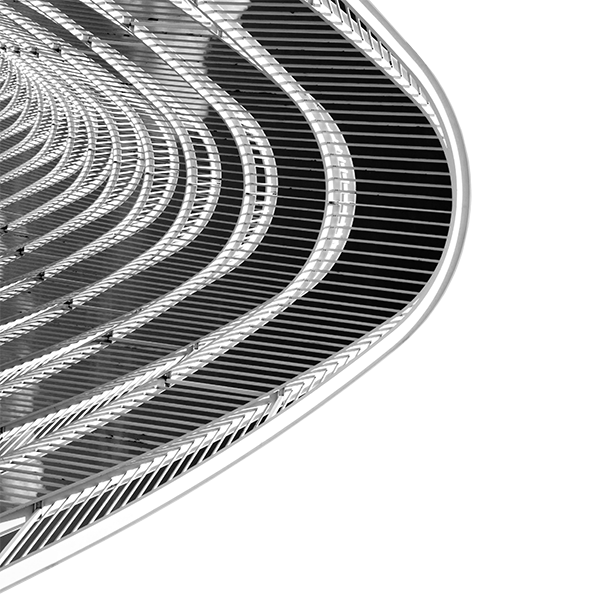Electromagnetic Compatibility (EMC) Technical Session
Session Co-Chairs:
Bruce Archambeault, Karen Burnham, and Grant Riley
Panel Topic 1:
Controlling electromagnetic noise from switching power supplies: EVs to satellites
Panel Topic 2:
Philosophies to support EMC troubleshooting
Original Research Presentations:
- Simulation and modeling for EMC design
- Advancements in simulations for EMC applications
- EM model validations
- Simulation and modeling for test support
- New approaches to EMC troubleshooting
- Developments in EMC standards
- Novel test methodologies
- Tailoring EMC requirements
- Evaluating electromagnetic environments
- EMI control methods
- Design approaches for EMC success
- Investigating unintended coupling paths
Technical Demonstrations :
We invite authors to submit abstracts for demonstrations, tutorials, and discussion of the state-of-the-art technologies in the topic area of EMC.
Important Dates:
Abstract Deadline: September 1, 2023
Author Instructions:
All text must be double spaced with 12-point Arial font. Footnotes, bibliographic references, and long quotations may be singled spaced, but double spaced between entries. Each page must be labeled with a page number on the bottom or top of the page.
An abstract may not exceed 500 words and should include the following:
- Title (not included in word count)
- Objective(s)
- Background
- Methods (research methods or innovation approach)
- Results and Conclusions (research results or innovation impact)
- References (optional, up to five; does not count towards word count)
Authorship:
Papers will be published to the public and must abide by authorship standards.
Authorship of paper should be limited to those individuals who have contributed in a meaningful way to its intellectual content. Speakers are responsible for crediting co-authors and references to ensure ethical standards in all publications which they will be listed as an author.
Abstracts do not have to be new publications.
Abstracts can be submitted by sending an email to ema.expo@ema3d.com.
Session Co-Chairs

Bruce Archambeault, EMC Distinguished Engineer, IBM
Dr. Bruce Archambeault received his B.S.E.E degree from the University of New Hampshire in 1977 and his M.S.E.E degree from Northeastern University in 1981. He received his Ph. D. from the University of New Hampshire in 1997. His doctoral research was in the area of computational electromagnetics applied to real-world EMC problems. In 1981 he joined Digital Equipment Corporation and through 1994 he had assignments ranging from EMC/TEMPEST product design and testing to developing computational electromagnetic EMC-related software tools.
In 1994 he joined SETH Corporation where he continued to develop computational electromagnetic EMC-related software tools and used them as a consulting engineer in a variety of different industries. He recently joined IBM in Raleigh, N.C. where he is a Senior member of Technical Staff, and a lead EMC engineer, responsible for EMC tool development and use on a variety of products. During his career in the U.S. Air Force he was responsible for in-house communications security and TEMPEST/EMC related research and development projects.
Dr. Archambeault has authored or co-authored a number of papers in computational electromagnetics, mostly applied to real-world EMC applications. He is currently a member of the Board of Directors on the IEEE EMC Society and a member of the Board of Directors of the Applied Computational Electromagnetics Society (ACES). He is the author of the book titled “PCB Design for Real-World EMI Control” and the lead author of the book titled “EMI/EMC Computational Modeling Handbook”. Dr. Archambeault is currently a Distinguished Lecturer for the IEEE EMC Society.

Karen Burnham, EMA Principal Scientist I
Karen Burnham is an electromagnetic compatibility subject matter expert with experience in the aerospace, defense, and automotive industries. She is familiar with requirements generation, regulatory compliance, verification and validation, systems engineering, test plans, and troubleshooting.
Karen is an iNARTE certified EMC engineer and sits on the SAE EMC working group that advises on CISPR, ISO, and SAE standards for automotive products and on various ANSI committees. In 2022 she was elected as the vice president of standards for the international IEEE EMC Society.
Karen has been active in the industry since 1996 with her most recent prior experience doing vehicle testing and troubleshooting for Ford Motor Company, both on traditional gas engines and also newer Hybrid Electric vehicles. Prior to that she was the lead EMC Engineer for the Dream Chaser space vehicle being built by the Sierra Nevada Corporation for crew transport to the International Space Station. She has worked as EMC lead on the NASA side for the European Service Module that will accompany the Orion spacecraft. At NASA she also conducted extensive research into the RF and lightning susceptibility of NASA Standard Initiators.

Grant Riley, Staff Scientist, EMA
Grant earned a PhD in physics from Colorado State University (CSU) in 2018 where he studied the effects of thermal lensing and shape anisotropy on spin wave propagation in ferromagnetic microstructures.
After graduating from CSU, he worked as a postdoc at the National Institute of Standards and Technology (NIST) in Boulder, where he led in developing a measurement technique based on inelastic light scattering to study exchange stiffness, a crucial parameter for magnetic devices in the semiconductor industry. Grant joined EMA in 2020 and relies on his extensive experimental background in magnetics research to find impactful solutions to problems in electromagnetic compatibility.


